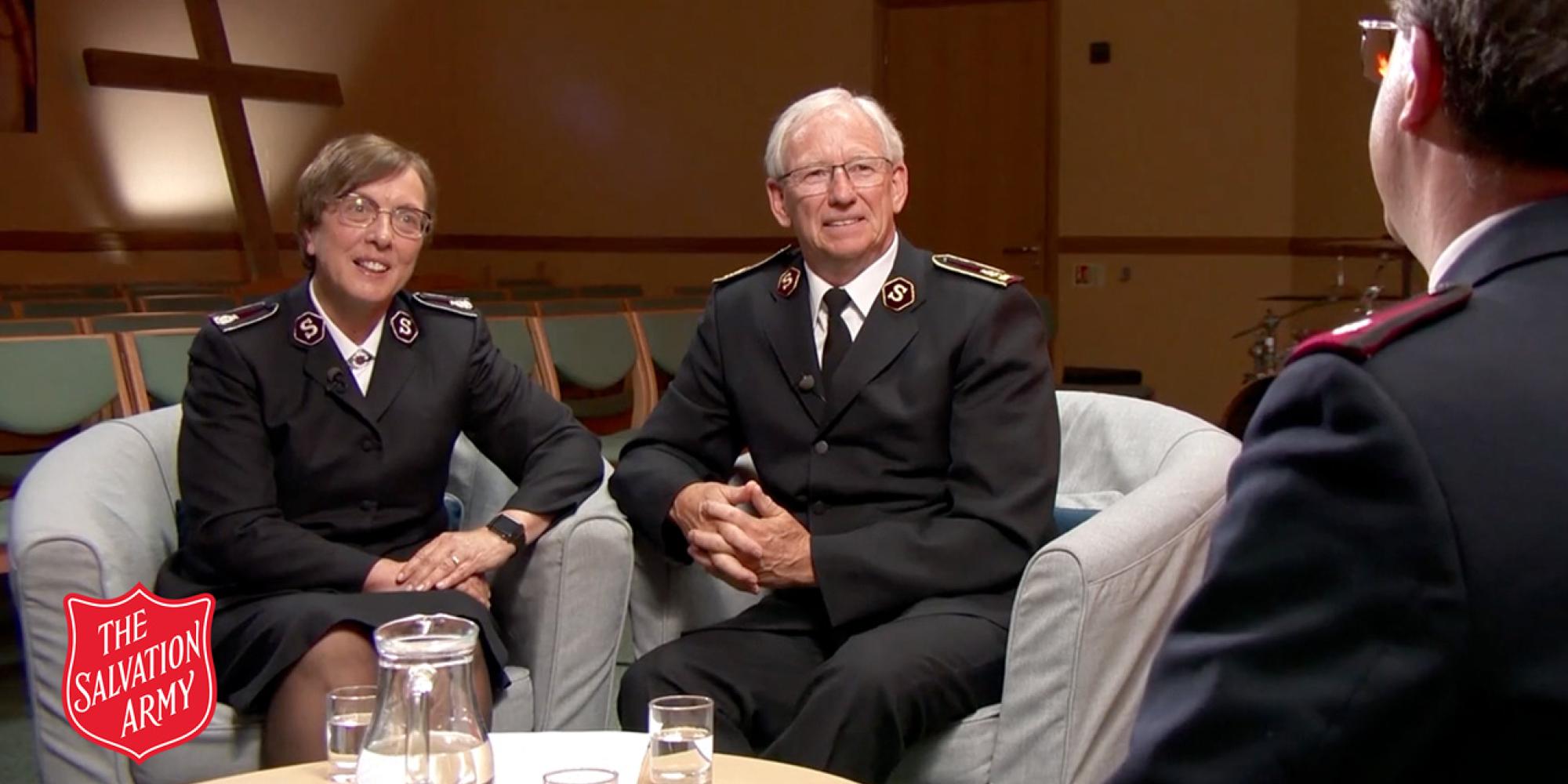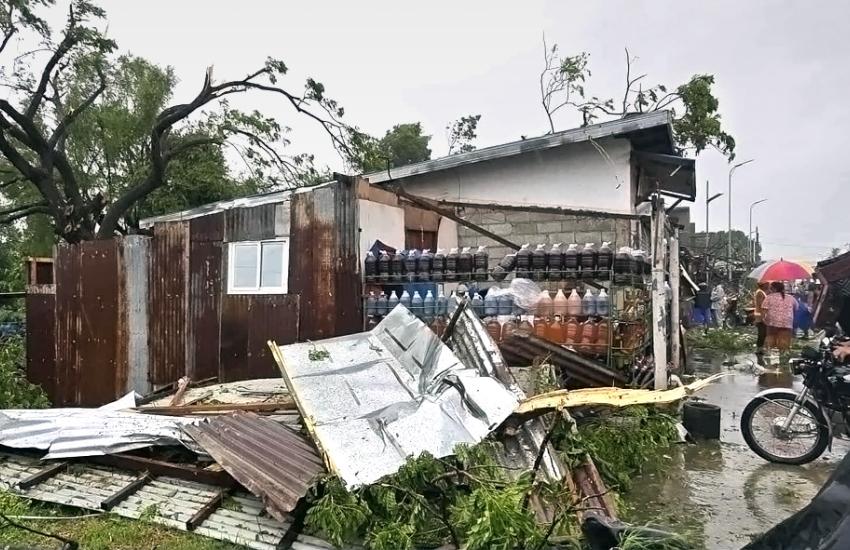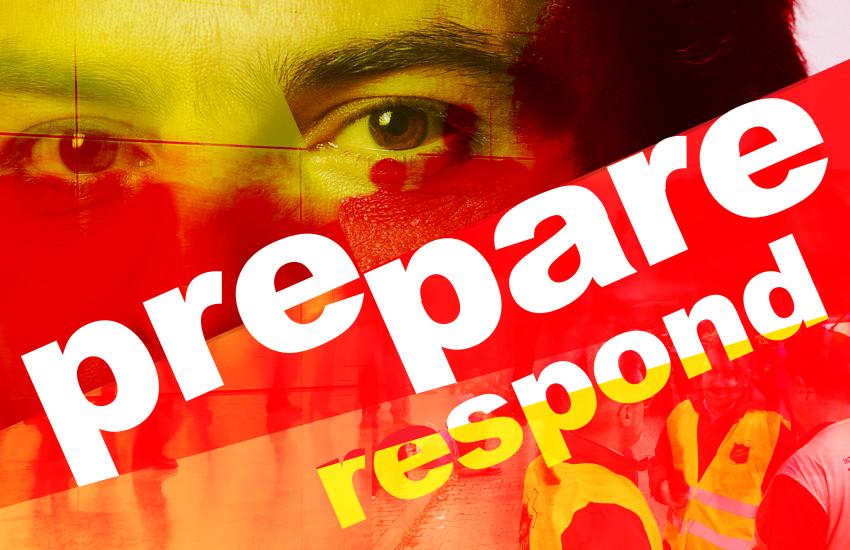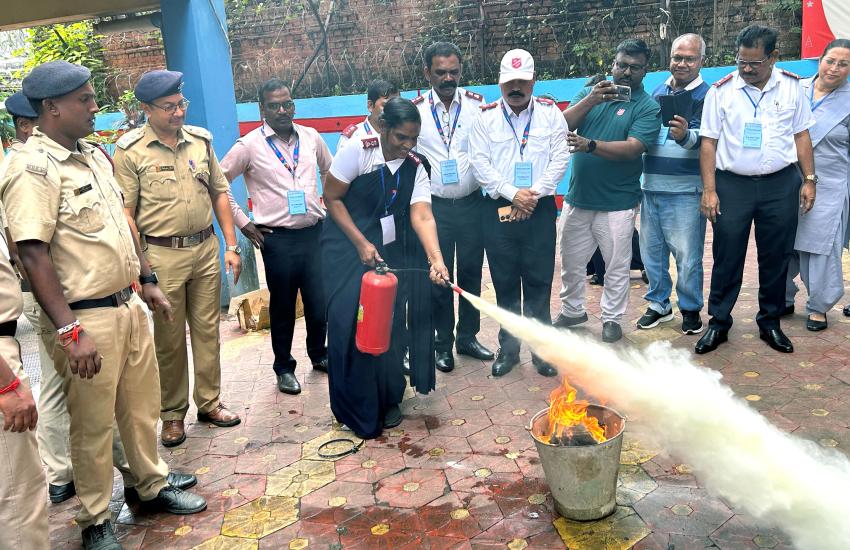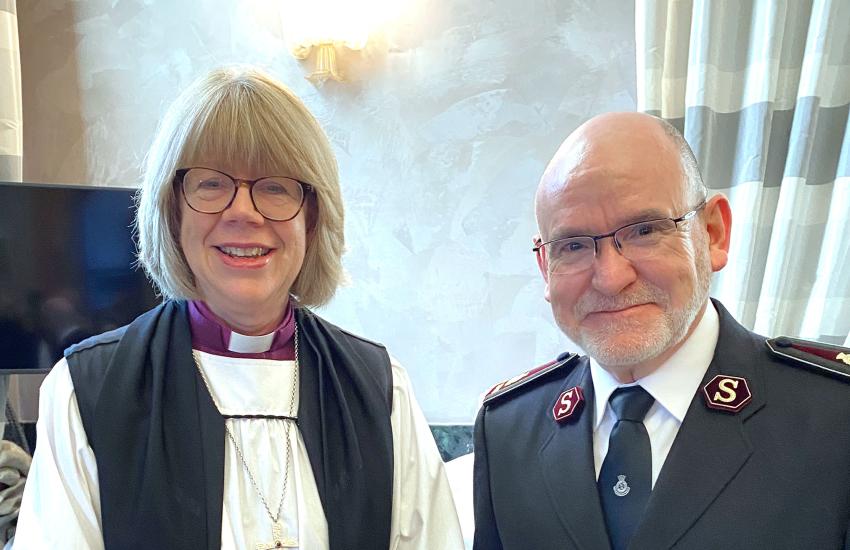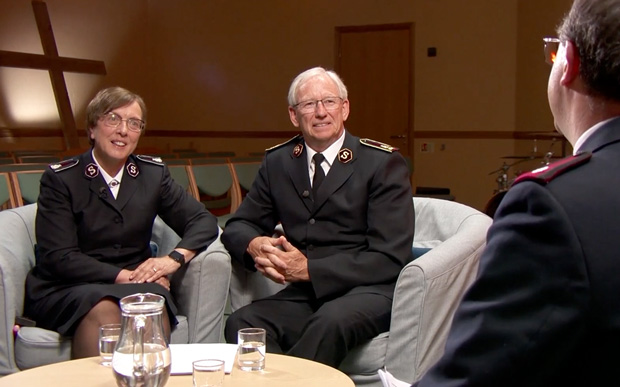 IN an exclusive video interview released today, General Brian Peddle and Commissioner Rosalie Peddle (World President of Women’s Ministries) speak openly and passionately about lockdown and the challenges and opportunities presented by The Salvation Army’s COVID-19 response. They also reflect on what might be the ‘next normal’ for The Salvation Army.
IN an exclusive video interview released today, General Brian Peddle and Commissioner Rosalie Peddle (World President of Women’s Ministries) speak openly and passionately about lockdown and the challenges and opportunities presented by The Salvation Army’s COVID-19 response. They also reflect on what might be the ‘next normal’ for The Salvation Army.
The interview, conducted in London by the General’s Private Secretary Major David Williamson, and filmed in a safe, socially-distanced manner, reveals how the General felt on leaving International Headquarters (IHQ) for the last time before lockdown commenced. He shares openly about the ‘air of uncertainty’ surrounding the start of lockdown, but acknowledges the blessing of donors. He holds his predecessors and current co-leaders in high esteem with regard to their fiscal management, putting The Salvation Army ‘in a position where we were months, even a year ahead on our resources of disbursement’.
The international leaders share how transitioning to an online, working-from-home model has enabled IHQ’s work in supporting The Salvation Army around the world to continue, despite the workforce being unable to come together physically. ‘For me,’ says Commissioner Rosalie, ‘I think that the one thing I really miss, truly miss is the IHQ family.’
She shares from her heart about concerns that have ‘accelerated’ during the COVID-19 pandemic: ‘Things like modern slavery, human trafficking, child safety, certainly domestic violence,’ she says, describing abuse within the home as a ‘huge concern right now’.
Reflecting on the adage that ‘the pandemic is no respecter of persons’, the General thoughtfully unpacks the ‘tremendously challenging’ reality of places in the world ‘where ventilators are hardly heard of [and] where PPE is … elusive’.
